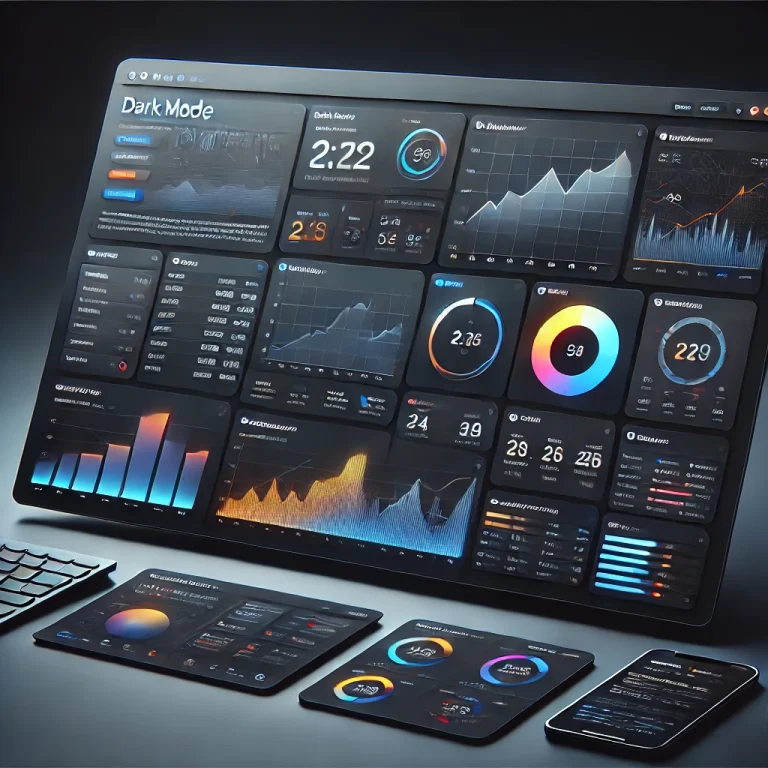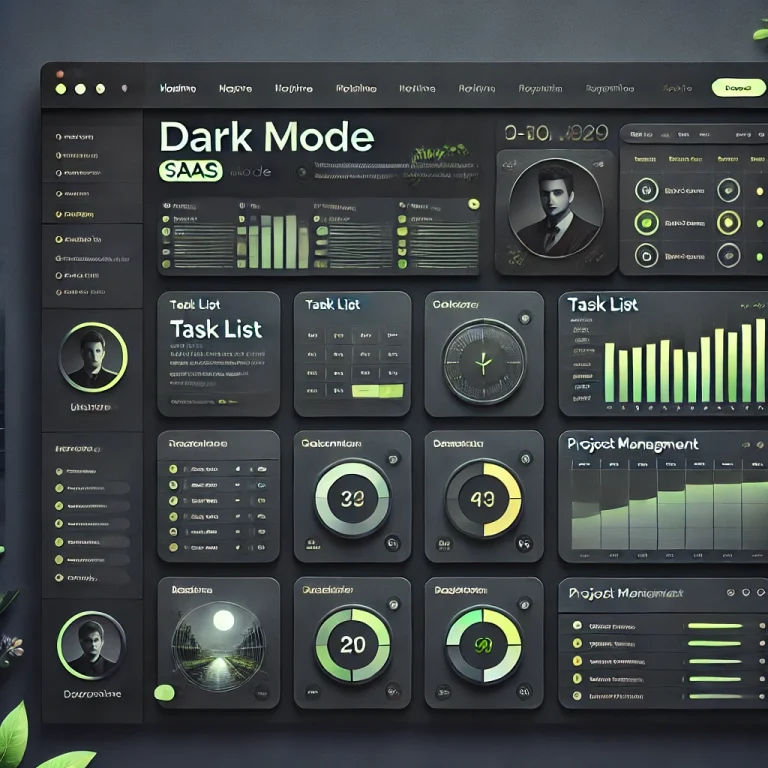Blockchain: A Comprehensive Guide to the Technology Shaping the Future
Table of Contents
- What is Blockchain?
- How Blockchain Works
- Key Features of Blockchain
- Types of Blockchain
- Applications of Blockchain Across Industries
- Benefits of Blockchain Technology
- Challenges and Limitations of Blockchain
- The Future of Blockchain Technology
- Conclusion
What is Blockchain?
Blockchain is a revolutionary technology that serves as a decentralized ledger for recording transactions securely and transparently. Initially introduced as the backbone of cryptocurrencies like Bitcoin, blockchain has evolved to find applications across multiple industries, thanks to its ability to offer transparency, security, and decentralization.
In essence, blockchain is a chain of blocks, where each block contains data, a timestamp, and a cryptographic hash of the previous block. This ensures that the information is tamper-proof and traceable.
How Blockchain Works
To understand blockchain, let’s break it down into its key components and processes:
1. Blocks
- Each block in the blockchain stores:
- Transaction data.
- A timestamp.
- A unique hash.
- The hash of the previous block, creating a linked structure.
2. Nodes
- Nodes are computers that maintain and validate the blockchain.
- Each node has a copy of the entire blockchain, ensuring decentralization.
3. Consensus Mechanisms
- Blockchain uses consensus algorithms to validate transactions. Common mechanisms include:
- Proof of Work (PoW): Miners solve complex mathematical problems to add new blocks.
- Proof of Stake (PoS): Validators are chosen based on the number of tokens they hold and are willing to “stake.”
4. Cryptography
- Blockchain relies on cryptographic techniques to secure data, ensuring that once information is recorded, it cannot be altered.
Key Features of Blockchain
Blockchain technology is defined by several standout features that make it unique and powerful:
1. Decentralization
- No central authority controls the data; instead, it is shared across a distributed network of nodes.
2. Transparency
- Transactions are visible to all participants in the network, promoting accountability.
3. Immutability
- Once data is added to the blockchain, it cannot be altered or deleted, ensuring integrity.
4. Security
- Blockchain employs advanced cryptographic techniques, making it highly resistant to hacking.
5. Smart Contracts
- Self-executing contracts with the terms of the agreement directly written into code.

Types of Blockchain
Blockchain technology can be categorized into four main types, each serving specific purposes:
1. Public Blockchain
- Open to anyone for participation.
- Example: Bitcoin, Ethereum.
2. Private Blockchain
- Restricted to a specific organization or group.
- Example: Hyperledger.
3. Consortium Blockchain
- Semi-decentralized; multiple organizations control the network.
- Example: R3 Corda.
4. Hybrid Blockchain
- Combines features of public and private blockchains.
- Example: Dragonchain.
Applications of Blockchain Across Industries
Blockchain’s versatility has paved the way for its adoption in various sectors. Here’s how it’s transforming industries:
1. Finance
- Facilitates faster and cheaper cross-border payments.
- Powers decentralized finance (DeFi) platforms.
2. Supply Chain Management
- Enhances transparency and traceability of goods.
- Reduces fraud and counterfeiting.
3. Healthcare
- Secures patient data and ensures interoperability.
- Enables tracking of pharmaceuticals to prevent counterfeit drugs.
4. Real Estate
- Simplifies property transactions with smart contracts.
- Provides a tamper-proof record of ownership.
5. Government
- Ensures secure voting systems.
- Streamlines public records management.
6. Energy
- Supports peer-to-peer energy trading.
- Tracks renewable energy sources.
7. Media and Entertainment
- Prevents piracy and protects intellectual property.
- Enables fair royalty distribution.
Benefits of Blockchain Technology
The widespread adoption of blockchain is driven by its numerous advantages:
1. Enhanced Security
- Blockchain’s decentralized and encrypted nature makes it highly secure.
2. Transparency
- Open ledgers allow all participants to view transaction details, ensuring trust.
3. Cost Efficiency
- Eliminates intermediaries, reducing costs associated with third-party services.
4. Faster Transactions
- Settlements that traditionally take days are processed in minutes or seconds.
5. Empowerment Through Decentralization
- Blockchain removes the need for centralized authorities, giving power back to users.

Challenges and Limitations of Blockchain
While blockchain holds immense promise, it is not without its challenges:
1. Scalability
- Networks like Bitcoin struggle with transaction speed and scalability.
2. Energy Consumption
- PoW blockchains consume significant amounts of energy.
3. Regulatory Uncertainty
- Varying global regulations hinder blockchain adoption.
4. Initial Costs
- Implementing blockchain solutions can be expensive.
5. Lack of Awareness
- Many organizations lack understanding or expertise in blockchain technology.
The Future of Blockchain Technology
Blockchain is evolving rapidly, and its potential is far from fully realized. Here are some trends shaping its future:
1. Integration with AI and IoT
- Blockchain combined with AI and IoT will enhance automation, data sharing, and security.
2. Expansion in DeFi
- Decentralized Finance (DeFi) platforms will grow, offering innovative financial services without intermediaries.
3. Central Bank Digital Currencies (CBDCs)
- Governments are exploring blockchain-based digital currencies to modernize monetary systems.
4. Enhanced Interoperability
- Future blockchains will prioritize cross-platform communication, enabling seamless interaction between different networks.
Blockchain
Blockchain is a transformative technology reshaping industries by enhancing transparency, security, and efficiency. Its applications are vast, spanning finance, healthcare, supply chain, and beyond. While challenges exist, the future of blockchain holds boundless possibilities.
Understanding blockchain and its potential is no longer optional—it’s essential. Whether you’re a business owner, developer, or enthusiast, staying informed about blockchain can position you to thrive in this rapidly evolving landscape.
By investing in blockchain knowledge and embracing its potential, you can unlock endless opportunities in today’s digital economy. Explore, innovate, and lead with blockchain.
Building Authority in Blockchain Knowledge
To establish topical authority in blockchain and make the most of its potential, continuous learning and application are key. Here are some actionable steps to deepen your expertise and leverage blockchain technology effectively:

How to Stay Updated with Blockchain Trends
The blockchain ecosystem evolves rapidly, with new projects, protocols, and applications emerging every day. Staying informed ensures you remain competitive and innovative in this space.
1. Follow Blockchain News and Publications
- Top Platforms:
- CoinDesk
- CoinTelegraph
- Decrypt
- Regularly check these sources for updates on blockchain developments, regulatory changes, and market insights.
2. Join Blockchain Communities
- Participate in forums like:
- Reddit (r/Blockchain, r/CryptoCurrency)
- Discord servers for blockchain projects
- GitHub for open-source blockchain contributions
3. Take Online Courses
- Platforms like Coursera, Udemy, and edX offer blockchain courses tailored for beginners and professionals.
- Explore certifications like the Certified Blockchain Expert (CBE) or Ethereum Developer Certification.
4. Attend Conferences and Webinars
- Notable Events:
- Blockchain Expo
- Consensus by CoinDesk
- Decentralized Finance (DeFi) summits
- Networking at these events can provide insights into practical use cases and future directions.
Blockchain in Everyday Life
Blockchain is no longer a niche technology—it’s becoming a part of everyday life. Here’s how it can benefit individuals and businesses:
1. Personal Finance Management
- Use blockchain wallets like MetaMask or Trust Wallet to manage cryptocurrency holdings securely.
- Participate in DeFi platforms for savings accounts with better interest rates than traditional banks.
2. Online Security
- Blockchain-based identity solutions, like those offered by Civic or SelfKey, help protect personal data online.
3. Ethical Consumerism
- Blockchain platforms like Provenance enable consumers to verify the ethical sourcing of products.
4. Freelancing and Payments
- Platforms like Bitwage allow freelancers to receive payments in cryptocurrency, reducing delays and transaction fees.
5. Educational Credentials
- Blockchain is being used by universities to issue tamper-proof digital certificates, making it easier to verify qualifications.
Key Blockchain Tools and Platforms
Several tools and platforms are driving blockchain adoption. Knowing how to use them is essential for anyone looking to explore this technology.
1. Blockchain Development Tools
- Truffle Suite: A development environment for Ethereum smart contracts.
- Remix IDE: An open-source platform for writing and testing Solidity code.
- Hardhat: A tool to simplify Ethereum development.
2. Blockchain Wallets
- Hardware Wallets: Ledger Nano X, Trezor for secure offline storage.
- Software Wallets: MetaMask, Coinbase Wallet for convenient online access.
3. Blockchain Analytics
- Etherscan: Explore Ethereum transactions and smart contracts.
- Glassnode: Analyze on-chain data for cryptocurrencies.
4. Blockchain-as-a-Service (BaaS)
- Providers like Amazon Managed Blockchain, IBM Blockchain Platform, and Microsoft Azure offer solutions for businesses to deploy blockchain without building from scratch.

How Businesses Can Leverage Blockchain
Businesses across industries can harness blockchain to improve efficiency, reduce costs, and build trust with customers.
1. Enhancing Supply Chain Transparency
- Companies like Walmart and IBM are using blockchain to trace the journey of products from origin to consumer.
- Benefits include:
- Reduced fraud.
- Improved recall processes.
- Enhanced customer trust.
2. Improving Payment Systems
- Blockchain-powered payment gateways like Ripple or Stellar allow businesses to process international payments quickly and cheaply.
3. Streamlining Contracts
- Smart contracts on platforms like Ethereum automate agreements, reducing the need for intermediaries and ensuring compliance.
4. Building Customer Loyalty Programs
- Blockchain enables secure and transparent loyalty reward systems, like those used by Singapore Airlines’ KrisPay.
Blockchain’s Role in Emerging Technologies
Blockchain isn’t an isolated innovation; it intersects with other cutting-edge technologies, amplifying its impact.
1. Blockchain and Artificial Intelligence (AI)
- AI can analyze blockchain data to uncover trends and optimize operations.
- Blockchain ensures data integrity in AI models.
2. Blockchain and Internet of Things (IoT)
- Blockchain enhances IoT by providing secure, immutable records for device interactions.
- Use Case: Smart homes using blockchain for automated, tamper-proof data logs.
3. Blockchain and Augmented Reality (AR)
- Blockchain powers virtual economies in AR games and metaverse projects like Decentraland.
Case Studies of Blockchain Success
Real-world applications of blockchain demonstrate its transformative potential:
1. VeChain
- Used by the luxury industry to verify product authenticity.
- Tracks everything from raw materials to the final product.
2. Ethereum
- Powers the majority of decentralized applications (dApps), from DeFi platforms to NFT marketplaces.
3. Bitcoin
- Revolutionized digital currency, paving the way for alternative financial systems.
Common Misconceptions About Blockchain
Despite its growing adoption, several myths about blockchain persist. Let’s debunk them:
1. Blockchain is Only for Cryptocurrencies
- While blockchain started with Bitcoin, it now supports industries like healthcare, logistics, and real estate.
2. Blockchain is Completely Anonymous
- Blockchain offers pseudonymity, not full anonymity. Transactions can be traced with enough effort.
3. Blockchain is Perfectly Secure
- While highly secure, blockchain is not invulnerable. Weaknesses often stem from external factors like poor private key management.
Blockchain
Blockchain is more than just a buzzword—it’s a groundbreaking technology reshaping how we think about security, transparency, and efficiency. Its applications span industries, from finance to healthcare, offering solutions to some of today’s most pressing challenges.
By understanding the fundamentals of blockchain, staying informed about its developments, and leveraging its potential, you can position yourself at the forefront of this technological revolution. Whether you’re an entrepreneur, developer, or enthusiast, blockchain offers opportunities that are too significant to ignore.
Explore blockchain today and be part of a future defined by innovation, security, and decentralized empowerment.
A Beginner’s Guide to Understanding Blockchain
Blockchain can seem intimidating at first, but with a clear breakdown, you’ll find it’s not as complex as it sounds. Below is a step-by-step guide to understanding blockchain technology and its practical applications.
1. What is Blockchain in Simple Terms?
Imagine a digital notebook that everyone can see but no one can alter. Blockchain is just that—a secure, transparent, and decentralized ledger of transactions. It’s used to store data, track activities, and execute agreements without the need for intermediaries.
2. Key Concepts You Should Know
To understand blockchain, familiarize yourself with these key terms:
- Block: A digital container storing transaction data, a timestamp, and a unique code called a hash.
- Chain: Blocks are linked together, forming a continuous chain that ensures data integrity.
- Decentralization: No single entity controls the blockchain. Instead, it operates on a network of nodes (computers).
- Consensus Mechanism: A system ensuring all participants agree on the data added to the blockchain. Common mechanisms include Proof of Work (PoW) and Proof of Stake (PoS).
3. How Blockchain Works
Here’s a simple example to explain how blockchain functions:
- Transaction Initiation: Imagine Alice wants to send money to Bob. She initiates a transaction.
- Verification: The network verifies Alice has enough funds and Bob is eligible to receive them.
- Block Creation: The transaction is grouped with others into a block.
- Consensus: Nodes in the network validate the block through a consensus mechanism.
- Adding to the Chain: Once validated, the block is added to the blockchain, ensuring it cannot be altered.
- Transaction Completion: Bob receives the funds, and the transaction is permanently recorded.
4. Benefits of Blockchain for Everyday Use
Blockchain isn’t just for tech experts or large corporations. Here are some ways it can benefit you:
- Secure Payments: Use cryptocurrencies like Bitcoin or Ethereum for fast, secure transactions without intermediaries.
- Data Privacy: Platforms like Civic allow you to control and protect your personal data.
- Smart Contracts: Automate agreements for freelancing gigs, rentals, or purchases using platforms like Ethereum.
- Investment Opportunities: Explore decentralized finance (DeFi) for higher returns on savings and investments.
5. Common Applications of Blockchain
Blockchain is revolutionizing various industries. Here are a few examples:
- Healthcare: Secure storage and sharing of medical records.
- Supply Chain: Track the origin of products, ensuring transparency.
- Voting: Enable tamper-proof, transparent elections.
- Real Estate: Simplify property transactions with digital contracts.
6. How to Get Started with Blockchain
Follow these steps to dive into the world of blockchain:
Step 1: Learn the Basics
- Start with free resources like blogs, YouTube channels, or courses on Coursera or edX.
- Recommended book: Blockchain Basics by Daniel Drescher.
Step 2: Experiment with Wallets
- Set up a cryptocurrency wallet like MetaMask or Trust Wallet.
- Use small amounts to learn how to send and receive funds.
Step 3: Try Blockchain Platforms
- Explore platforms like Ethereum or Solana to learn about smart contracts.
- Use blockchain apps (dApps) for decentralized services.
Step 4: Stay Updated
- Follow blockchain news on websites like CoinDesk or CoinTelegraph.
- Join forums like Reddit’s r/Blockchain or Discord groups for discussions.
7. Tips for Staying Safe in the Blockchain World
- Secure Your Keys: Always store your private keys offline in a safe place.
- Verify Transactions: Double-check wallet addresses before sending funds.
- Avoid Scams: Be cautious of “too good to be true” investment schemes.
- Use Trusted Platforms: Only use reputable wallets, exchanges, and apps.
8. Resources to Learn More
Expand your knowledge with these tools:
- Websites: Investopedia, Blockchain.com.
- Books: Mastering Blockchain by Imran Bashir.
- Courses:
- “Blockchain Specialization” on Coursera.
- “Certified Blockchain Expert” on Blockchain Council.
Blockchain
Blockchain is a powerful technology with the potential to transform how we interact with data, money, and agreements. By taking small, deliberate steps to understand and engage with blockchain, you can unlock its benefits and become a part of this revolutionary digital future. Start your journey today, and explore the endless possibilities blockchain has to offer!
Frequently Asked Questions About Blockchain
To help you better understand blockchain technology, here are answers to the most commonly asked questions:
1. What is Blockchain Used For?
Blockchain is used for various purposes, including:
- Securely storing and transferring cryptocurrencies like Bitcoin and Ethereum.
- Automating contracts through smart contracts.
- Enhancing supply chain transparency and tracking.
- Protecting sensitive data in industries like healthcare and finance.
- Building decentralized applications (dApps) for finance, gaming, and more.
2. Is Blockchain the Same as Bitcoin?
No. Bitcoin is a cryptocurrency that uses blockchain as its underlying technology. Blockchain, however, is a versatile platform with applications beyond cryptocurrencies, such as healthcare, real estate, and voting systems.
3. How Secure is Blockchain?
Blockchain is highly secure due to:
- Decentralization: Data is stored across multiple nodes, making it hard to tamper with.
- Cryptography: Ensures transactions are encrypted and immutable.
- Consensus Mechanisms: Prevents fraudulent transactions by requiring network agreement.

4. Can Blockchain Be Hacked?
While blockchain is highly secure, vulnerabilities can exist in the surrounding ecosystem, such as:
- Poor private key management.
- Flaws in smart contract code.
- Centralized control in certain blockchain implementations.
5. What is a Smart Contract?
A smart contract is a self-executing digital agreement where the terms are written directly in code. These contracts automate processes, ensuring they are executed when predefined conditions are met.
6. What is the Difference Between Public and Private Blockchain?
- Public Blockchain: Open to everyone, decentralized, and transparent (e.g., Bitcoin, Ethereum).
- Private Blockchain: Restricted to a specific group or organization, offering more control and privacy (e.g., Hyperledger).
7. How is Blockchain Different from Traditional Databases?
- Decentralization: Blockchain data is distributed across nodes, whereas traditional databases are centralized.
- Immutability: Blockchain records cannot be altered once added, while database entries can be edited.
- Transparency: Blockchain data is accessible to all participants, enhancing accountability.
8. What Are Blockchain Nodes?
Nodes are computers that maintain a copy of the blockchain and validate transactions. They play a crucial role in ensuring the network’s security and decentralization.
9. How Do I Invest in Blockchain?
You can invest in blockchain by:
- Buying cryptocurrencies like Bitcoin, Ethereum, or Solana.
- Investing in blockchain companies or ETFs.
- Participating in blockchain-based decentralized finance (DeFi) projects.
10. What Are the Limitations of Blockchain?
Despite its potential, blockchain has some limitations:
- Scalability issues with large networks like Bitcoin.
- High energy consumption, especially with Proof of Work (PoW) systems.
- Regulatory uncertainty in many regions.
- High initial implementation costs for businesses.
11. What is Blockchain Mining?
Mining is the process of validating and adding transactions to a blockchain. Miners solve complex mathematical problems, and successful miners are rewarded with cryptocurrency.
12. What Are NFTs and How Do They Relate to Blockchain?
NFTs (Non-Fungible Tokens) are unique digital assets that represent ownership of a specific item or piece of content, such as art, music, or videos. NFTs are created and traded on blockchain platforms like Ethereum.
13. Is Blockchain Environmentally Friendly?
Not always. Some blockchains, especially those using Proof of Work (PoW), consume significant energy. However, newer models like Proof of Stake (PoS) and green blockchain projects are addressing this issue.
14. How Do I Start Learning About Blockchain?
Start with the following steps:
- Take online courses on platforms like Coursera or Udemy.
- Experiment with blockchain wallets and cryptocurrencies.
- Read books like Blockchain Basics by Daniel Drescher.
15. What Industries Benefit Most from Blockchain?
Industries adopting blockchain include:
- Finance: Decentralized finance (DeFi), payments, and lending.
- Healthcare: Securing medical records and supply chains.
- Real Estate: Simplifying property transactions.
- Retail: Enhancing transparency in supply chains.
16. What Are the Risks of Using Blockchain?
Risks include:
- Irreversible transactions: Errors cannot be undone.
- Scams and fraud in the cryptocurrency space.
- Regulatory challenges in certain countries.
- Potential loss of access if private keys are lost.
17. What is the Role of Blockchain in Web 3.0?
Blockchain is foundational to Web 3.0, enabling decentralized applications, digital identity, and secure, transparent interactions. It empowers users to own and control their data.
18. Can Blockchain Replace Traditional Banking?
Blockchain offers an alternative to traditional banking through decentralized finance (DeFi). However, it’s unlikely to replace banks entirely, as both systems have unique strengths.
19. How Long Does it Take to Learn Blockchain?
Basic blockchain concepts can be learned in a few weeks through dedicated study. Mastery, especially in blockchain development, can take months or even years of practice.
20. What’s the Future of Blockchain Technology?
Blockchain’s future is promising, with advancements like:
- Greater adoption in everyday industries.
- Development of green blockchain solutions.
- Integration with technologies like AI and IoT.
- Mainstream use of Central Bank Digital Currencies (CBDCs).
These FAQs provide clarity on key aspects of blockchain technology, making it easier for beginners and enthusiasts to dive into the exciting world of blockchain. If you’re curious or planning to explore blockchain further, these insights will serve as your foundation.
Best Blockchain Software Solutions
Blockchain software is crucial for managing decentralized applications, cryptocurrencies, and enterprise solutions. Whether you’re an individual exploring blockchain for personal use or a business integrating blockchain into operations, these software options can enhance your experience.
1. Ethereum
- Overview: Ethereum is a decentralized platform enabling developers to build and deploy smart contracts and dApps.
- Key Features:
- Supports a vast ecosystem of decentralized applications (dApps).
- Powers tokens like ERC-20 and NFTs.
- Reliable and secure for smart contract execution.
- Best For: Developers and businesses creating blockchain applications.
2. Hyperledger Fabric
- Overview: Hyperledger Fabric is an enterprise-grade permissioned blockchain framework.
- Key Features:
- Highly customizable for private blockchain networks.
- Supports modular architecture for scalability.
- Ideal for industries like healthcare, supply chain, and finance.
- Best For: Enterprises requiring secure, private blockchain solutions.
3. IBM Blockchain Platform
- Overview: A fully integrated blockchain platform designed for enterprises.
- Key Features:
- Easy-to-use interface for deploying blockchain networks.
- Offers tools for building, operating, and scaling blockchain solutions.
- Enterprise-grade security and support.
- Best For: Large organizations seeking a robust blockchain service.
4. Coinbase Wallet
- Overview: A secure cryptocurrency wallet and decentralized application browser.
- Key Features:
- Supports multiple cryptocurrencies and tokens.
- Easy integration with dApps and DeFi platforms.
- User-friendly interface for beginners.
- Best For: Individuals managing cryptocurrencies and interacting with dApps.

5. MetaMask
- Overview: A popular browser extension and mobile wallet for Ethereum-based assets and dApps.
- Key Features:
- Allows seamless interaction with Ethereum-based applications.
- Easy management of Ethereum tokens and NFTs.
- Open-source and widely adopted by the blockchain community.
- Best For: Developers and users interacting with Ethereum dApps.
6. R3 Corda
- Overview: A blockchain platform designed for businesses to create permissioned networks.
- Key Features:
- Optimized for enterprise use cases like finance and supply chain.
- Focus on privacy and data sharing.
- Efficient consensus mechanisms tailored for business needs.
- Best For: Enterprises seeking private and scalable blockchain solutions.
7. ConsenSys Quorum
- Overview: An Ethereum-based blockchain platform tailored for businesses.
- Key Features:
- High performance and privacy for enterprise use.
- Seamlessly integrates with Ethereum’s ecosystem.
- Supports complex smart contracts and decentralized apps.
- Best For: Enterprises needing secure and scalable Ethereum-compatible solutions.
8. Binance Smart Chain
- Overview: A blockchain network developed by Binance for smart contracts and dApps.
- Key Features:
- Low transaction fees and high-speed transactions.
- Compatible with Ethereum Virtual Machine (EVM).
- Supports DeFi platforms and NFT projects.
- Best For: Developers and users exploring affordable alternatives to Ethereum.
Start with Binance Smart Chain
9. Stellar
- Overview: A blockchain network designed for cross-border payments and asset tokenization.
- Key Features:
- Low-cost, fast transactions ideal for financial institutions.
- Facilitates token creation and exchange.
- User-friendly for businesses and developers.
- Best For: Financial institutions and cross-border payment solutions.
10. Polkadot
- Overview: A multi-chain platform enabling interoperability between different blockchains.
- Key Features:
- Facilitates communication between blockchains.
- Highly scalable and customizable.
- Supports parachains for specialized blockchain projects.
- Best For: Developers working on multi-chain applications.
How to Choose the Right Blockchain Software
- Define Your Needs:
- Are you a developer, individual, or enterprise?
- Do you need a public or private blockchain solution?
- Assess Scalability:
- Choose platforms like Polkadot or Ethereum for large-scale projects.
- Opt for private frameworks like Hyperledger for internal use.
- Consider User-Friendliness:
- Wallets like Coinbase and MetaMask are perfect for beginners.
- Development tools like Ethereum are ideal for advanced users.
- Check Costs:
- Public blockchains may have higher transaction fees.
- Private blockchains may involve subscription or setup costs.
By selecting the right blockchain software, you can harness the power of blockchain technology for your specific needs, whether you’re a beginner exploring cryptocurrencies or a business implementing cutting-edge solutions.



